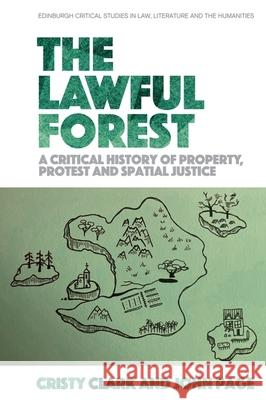The Lawful Forest: A Critical History of Property, Protest and Spatial Justice » książka
The Lawful Forest: A Critical History of Property, Protest and Spatial Justice
ISBN-13: 9781474487443 / Angielski / Twarda / 2022 / 240 str.
The Lawful Forest: A Critical History of Property, Protest and Spatial Justice
ISBN-13: 9781474487443 / Angielski / Twarda / 2022 / 240 str.
(netto: 466,45 VAT: 5%)
Najniższa cena z 30 dni: 428,18
ok. 30 dni roboczych.
Darmowa dostawa!
This book is a study of the critical history of space, and the ways in which a dominant property ideology has entrenched an exclusionary and profoundly alienating version of spatial ordering. It focuses on select periods in time, when the seemingly linear trajectory of enclosure momentarily wavers and alternate spatial paths briefly materialize, before 'disappearing' from plain sight. Using the forest as a thematic device, Clark and Page explore the tensions that pervade our propertied relationships; between commodity and community, abstraction and context, and private enclosure and the public square.The book draws on a range of case studies including the 13th century Forest Charter, Thomas More's Utopia, the Diggers' radical agrarianism, the Paris Commune's battle for the right to the city, and Australian forest protestors of the late 20th and early 21st centuries. Through analysis of these movements and their contexts, the authors illustrate the origin, history and legal status of the lawful forest and its modern-day companions. Although the dominant spatial paradigm is one where private rights prevail, this book shows that communal relationships with land have always been part of our law and culture.











